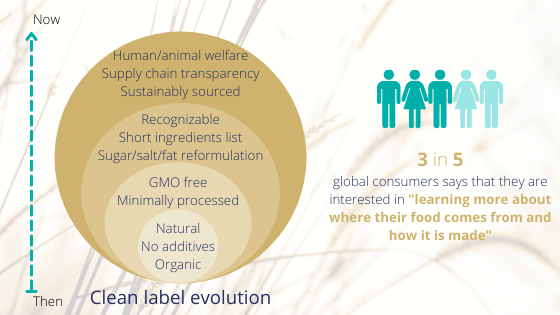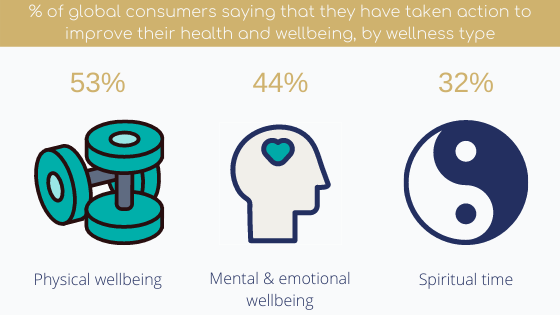
The place of dairy ingredients in consumer trends for 2021
While we are still confronted with a pandemic and we are starting to see the outlines of the world to come, our team is taking stock of consumer trends for 2021. The epidemic accelerated trends. Consumers are more aware of the link between their health and their food, as well as the connection between what they eat and the health of the planet. Consumers are therefore expanding their definition of healthy products to include those that are good for both themselves and the planet.
Discover the place of dairy ingredients in consumer trends for 2021.
From clean label to sustainable clean label
There is not just one but several definitions of the clean label. Consumers are taking a greater interest in what their products contain and consequently in the labels of the products they buy. They are looking for natural products that do not contain artificial ingredients or preservatives. These expectations fuel clean label trends. But as consumer expectations have changed, the definition of clean label has broadened to cover organically farmed, GMO-free products with limited processing. More recently, the clean label expanded to include sustainable development considering criteria such as sustainable supply, supply chain transparency, and human and animal welfare.
As consumer expectations have changed, the definition of clean label has broadened.

Figure 1: Clean label evolution [1]
Consumers are therefore looking, not only for clean label products, but also for products manufactured by companies with a ‘clean’ conscience.
Dairy and whey-derived proteins are among clean label solutions to replace additives such as stabilisers, thickening and setting agents and emulsifiers. More specifically native proteins, such as native whey proteins, fit the expanded clean label definition for products with limited processing.
A holistic approach to health
Well-being is at the centre of considerations for consumers who adopt a more global definition of their health.
Between nutritional benefits and pleasure
As a result of the pandemic, consumers are motivated to adopt a healthier diet and, more than ever, food has become part of a preventive approach to staying healthy. Consumers are therefore drawn to functional products that combine different health benefits. In such a context, adjectives such as ‘delicious’ and ‘nutritional’ are no longer opposed and must go hand in hand. The agro-food industry must therefore meet consumer expectations for healthy yet tasty products.
Adjectives such as ‘delicious’ and ‘nutritional’ are no longer opposed and must go hand in hand.
Consumers also want to avoid ‘empty calories’. Such ‘empty’ or ‘hollow’ calories’ refer to the energy value provided by certain foods, which, from a health perspective, do not provide any essential nutrients. Consumers are therefore moving towards nutritionally dense products, which are particularly challenging to formulate, especially in the case of protein-enriched products.
If we are trying to do more with less, and consequently maximise the health benefits, Pronativ® – Native Whey Protein is the solution. The benefits for muscle health have been proven in clinical studies. Pronativ® – Native Whey Protein provides the same muscle function benefits as whey protein, but with more moderate consumption due to the protein quality.
Food to enhance immunity
Once again, the COVID-19 epidemic has disrupted consumer habits. Consumers are turning to food to strengthen their immune system against disease. Three in five consumers are looking for more products to support their immune system[2].

Figure 2: Consumer trends for 2021: being more proactive in the field of immune health [2]
Dairy ingredients and more specifically dairy proteins can support the immune system thanks to their essential amino acid content and their role in renewing immune cells.
Food to nourish the mind
The different lockdown periods experienced in 2020 have had an impact on the level of consumer anxiety. Consumers are therefore looking to find time to relax. They want to find time for spirituality and physical well-being and 44% are taking action to improve their mental and emotional well-being. As a result, functional food items providing mental and emotional health benefits should be broadened to include new product categories with new consumption opportunities.

Figure 3: Consumers are more committed to their health and well-being [2].
Consumers are looking for products that can help them stay concentrated, relax, and prevent emotional health problems. Already existing product categories such as energy drinks, are therefore likely to continue their progression and others, which are currently less well known, such as sleep-promoting foods, will emerge.
Among milk bio-peptides, alpha-lactalbumin is particularly interesting in terms of mental health. This peptide is the fraction of milk that is richest in tryptophan. It has been proven that by increasing serotonin, a diet with tryptophan-rich protein helps reduce feelings of depression and improves memory and attention span among people who are prone to stress[3]. Pronativ® – Native Whey Protein is rich in alpha-lactalbumin and contains 40% more tryptophan whey protein from cheese production.
For further information on the use of our dairy ingredients please contact our specialists.
Sources :
[1] Innova Market Insights, Top Ten Trends for 2021. November 2020.
[2] Innova Database. Innova Consumer Survey 2020. Average for the UK, the US, Spain, France, Brazil, India, Germany, Mexico, China and Indonesia.
[3] Markus et al. The bovine protein alpha-lactalbumin increases the plasma ratio of tryptophan to the other large neutral amino acids, and in vulnerable subjects raises brain serotonin activity, reduces cortisol concentration, and improves mood under stress. Am J Clin Nutr 2000;71(6):1536–44.















